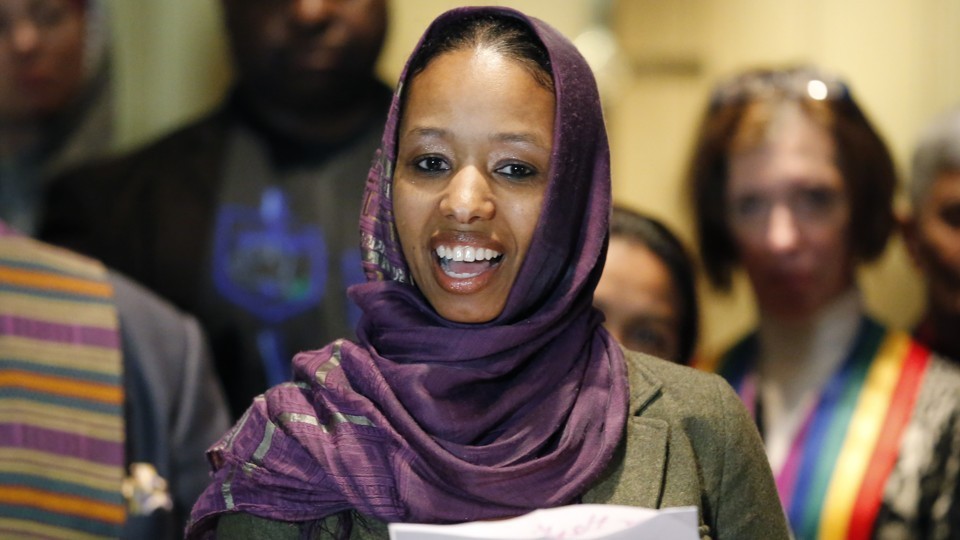 recent article by Ruth Graham in the New York Times revisits the Wheaton–Hawkins controversy of last year. Shedding fresh light on the situation, Graham’s article highlights some of the complexities that surrounded Larycia Hawkins’ dismissal from Wheaton College, and the earlier tensions that led to it. Graham rightly elevates some important context to this affair that was previously unrevealed. Did Wheaton’s provost, Stanton Jones, have it out for Hawkins from the outset? Did Hawkins intentionally push the envelope from the perceived safety of her tenure? It’s not completely clear one way or the other — as with many things in life, the evidence is mixed and there are different sides to the story. Offenses felt by anyone involved do not acquit either party of its own wrongdoings. This mess requires Christians to utilize tact and wisdom and to extend a charitable spirit, being “quick to hear, slow to speak, slow to anger” (James 1:19). But in my own view, the true cause of Hawkin’s dismissal — fundamentally, ultimately, definitively — is not that she wore a hijab. In fact, I thought that fact she wore one was great contextualization. If wearing a simple article of clothing lowers the threshold to have a conversation with a Muslim - I have absolutely no problems with it. By no means does it compromise her faith in Christ. But it was not that she expressed solidarity with Muslims that was alarming. And contrary to the repeated tune of Graham’s article, it was not about Hawkins being African-American. The cause of her firing comes down to her epistemology. Why do I say this? Because I witnessed the problem firsthand. I was a student in Dr. Hawkins’ class on government and politics at Wheaton in the spring of 2012. I remember her always being warm, friendly, outgoing, and easy to converse with. Coming off of active duty in the military, being married, and living off campus, I felt that I related more with the faculty than with my “peers,” who were actually four or five years younger than me. I enjoyed my time at Wheaton, and I particularly appreciated the accessibility and openness that Larycia shared with her students and the loving character that she embodied. It was in her class that she asked this fundamental question to her students: How do you know what you know? I cannot recall a time prior to that Tuesday morning at Wheaton that I had ever been asked that question. After an initial silence, a few answers trickled in from the students. “Reason,” “observation,” “experience,” perhaps? The challenge she gave was that how we knowthe things that we know must be grounded somewhere. Although I cannot recall what I thought at the time, I can now say this with confidence: Where we ground our epistemology matters immensely, indeed. If Scripture is what it claims to be — if it is the final, decisive, inerrant Word from God — then it must be the supreme standard that shapes our worldview as Christians. Wheaton College, an Evangelical institution, has historically stood on Scripture as the sole infallible rule of faith. This is in contrast to, say, Roman Catholic institutions, which ground their epistemology not ultimately in Scripture alone, but divided between Scripture and sacred tradition as defined by the magisterium of Rome. But what is Hawkins’ epistemology? While the Times article is primarily aimed at portraying Hawkins as the victim of administrative bullying, it also reveals much about Hawkins’ own epistemology and the sources of authority that govern her values. Admittedly, the article largely centers on Hawkins’ actions at Wheaton: challenging students to care about injustice, systemic racism, and brokenness, which are very near and dear to the heart of God. But this is not the decisive point in the article. The decisive point comes in the justification Hawkins gives for her positions. When she ultimately gave her rationale, saying, “I stand in religious solidarity with Muslims, because they, like me, a Christian, are people of the book. And as Pope Francis stated last week, we worship the same God,” what source of authority was she appealing to? Evidently she was not appealing to Scripture, because Scripture would not permit her to identify with Muslims at the religious and spiritual level. More specifically, it would not permit her to identify Christ, the immanent God made flesh (Jn 1:1, 14), with Allah, the distantly transcendent god who is unknowable to human beings. The Scripture that Hawkins invokes to address injustice and brokenness seems, for her, interchangeable with other authorities, such as the Pope and the Qur’an. The idea of “people of the book” is completely unique to the Qur’an — it is an Islamic assessment of Christians and Jews, who are believed to have some minor religious connection to Islam. But this concept is completely foreign to the Bible, which sees no spiritual common ground between those who worship the Trinity and those who worship a Christless God. “No one who denies the Son has the Father. Whoever confesses the Son has the Father also” (1 Jn. 2:23). So how does Hawkins know that Christians and Muslims worship the same God? Not from the infallible rule of faith. Not from Jesus. If the argument is grounded in any other place outside the pages of the canon, then clearly Scripture is not the standard being used. And if Scripture is not the standard, then anything is ultimately up for reinterpretation. If Scripture is not sufficient, anything can be used as a supplement — the Pope, the Qur’an, or the latest in social science. When we don’t allow God’s Word to be decisive in shaping our views, we show that we don’t actually trust God. We arbitrarily begin appealing to the Pope and to the Qur’an, not necessarily because we trust those sources as infallible, but because we trust ourselves as infallible and find those other sources to be convenient allies in our modern cultural setting. And this was Hawkins’ problem: not that she merely misspoke, but that on this key issue, she trusted her own intuitions over the clear testimony of Scripture. For the record, I think Graham’s article did a terrific job of humanizing Larycia Hawkins. It can be easy to overlook a person’s humanity (and even genuine faith) when making the case that someone is severely wrong. Hawkins is not an evil person. No, she, like Muslims, is an image bearer of God, worthy of dignity and respect regardless of anything she could ever do or say. How do I know that? My standard of authority, the Bible, tells me so. *NOTE - I attempted to send a copy of this article to Dr. Hawkins when it was first published. Her old email appears to have been disabled so I also followed up with a tweet link instead. I believe it should be in the spirit of charitable discourse that if you are going to criticize someone, we should write as though you were going to deliver it to them personally. I sincerely love Layrica Hawkins as a sister in Christ and hope others, despite grave differences they may have with her, will attempt to posture themselves toward her in that way.
0 Comments
Leave a Reply. |


